Rob Bell's Blog
January 30, 2026
Amy Morin- Mental Toughness Podcast: Practical Steps to Build Resilience and Strength
I interviewed Amy Morin on my podcast to dig into everyday strategies that actually move the needle on resilience. In this Amy Morin- Mental Toughness Podcast summary I pull together the practical frameworks, habit changes, and mindset shifts we discussed so you can apply them immediately. If you want clear tools for grief, confidence, habit change, and emotional recovery, this is written for you.
Table of Contents What mental toughness really means
What mental toughness really means Grief and resilience: practical ways to survive early loss
Grief and resilience: practical ways to survive early loss Subtraction over addition: the habit trick I keep repeating
Subtraction over addition: the habit trick I keep repeating Lazy genius: design your environment to win
Lazy genius: design your environment to win Permission to laugh: why humor helps when you are grieving
Permission to laugh: why humor helps when you are grieving Try something new: rebuilding identity after loss
Try something new: rebuilding identity after loss The power of “don’t do” lists
The power of “don’t do” lists Confidence, doubt, and how to act anyway
Confidence, doubt, and how to act anyway Common mistakes and pitfalls
Common mistakes and pitfalls Quick checklist: 10 actions you can do today
Quick checklist: 10 actions you can do today How to keep practicing mental toughness
How to keep practicing mental toughness Summary and next steps
Summary and next steps What mental toughness really means
What mental toughness really meansWhen I asked Amy what “mental toughness” looks like in practice she broke it down into three connected parts: thought, feeling, and behavior. That framework makes mental toughness tangible because it separates what you notice in your head, what you feel in your body, and what you do next.
Thoughts: Learn to spot automatic, unhelpful beliefs and test them instead of accepting them as facts.Feelings: Emotions are signals, not commands. You can acknowledge a feeling without letting it dictate action.Behavior: Action often leads feeling. Small purposeful behaviors shift emotion and identity over time.This three-part model was a throughline in the conversation and I refer to it throughout this post because it underpins the specific techniques Amy recommends on the Amy Morin- Mental Toughness Podcast.
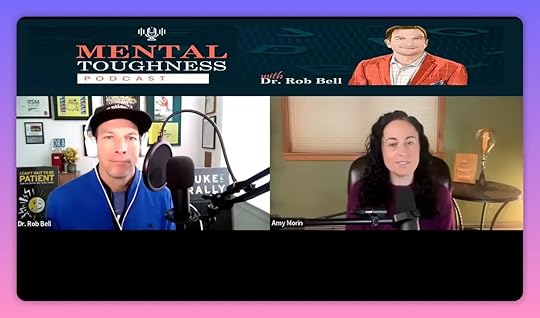
 Grief and resilience: practical ways to survive early loss
Grief and resilience: practical ways to survive early lossAmy reflected on using faith, reading, and practical supports to navigate intense early losses. She emphasized two types of help that people often underestimate:
Meaning-making tools: Reading thoughtful accounts of grief can give language for what you feel and reduce the isolation that comes with shock and confusion.Concrete workplace plans: Having coworkers or a manager create a reintegration plan after a loss—deciding who informs clients, what first-day-back looks like, and when to check in—reduces social stress and awkwardness.Those pragmatic moves matter because they remove friction, allowing emotional recovery room without added logistical overwhelm. I highlighted these on the Amy Morin- Mental Toughness Podcast as interventions people can set up for themselves or request from others.
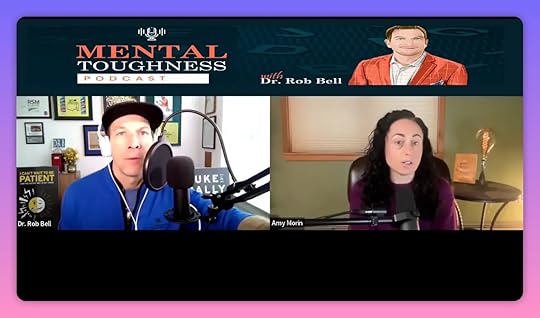
 Subtraction over addition: the habit trick I keep repeating
Subtraction over addition: the habit trick I keep repeatingAmy made a key point that resonated: many attempts to improve fail because we pile on new behaviors without removing the self-defeating one that undoes progress. She calls this a subtraction strategy.
Examples:
Instead of adding hours at the gym, remove the nightly sugary beverage that cancels caloric deficits.Instead of only journaling gratitude, reduce complaining loops that reinforce negativity.On the Amy Morin- Mental Toughness Podcast we discussed the “path of least resistance” principle: make the unwanted habit harder and the wanted habit easier. Small environmental changes create that differential.

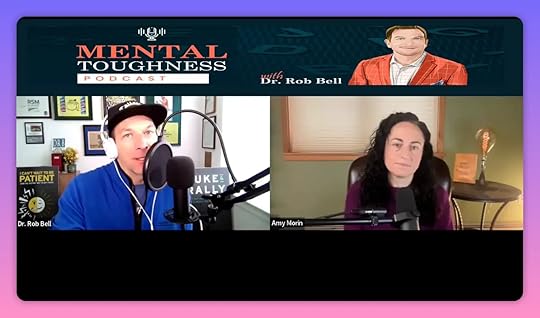
 Lazy genius: design your environment to win
Lazy genius: design your environment to winOne practical label Amy used is “lazy genius.” The idea is not to rely on heroic willpower but to design your surroundings so the right behaviors are easy. This is a powerful lever for anyone who knows what to do but struggles to do it consistently.
Specific tactics I recommend after our talk:
Pack your water bottle and workout clothes the night before.Hide impulsive temptations—put cookies out of sight or remove saved payment details for impulse purchases.Create tiny friction for bad behaviors and tiny triggers for good ones, for example, keep healthy snacks visible and sweet treats in a hard-to-reach place.Amy shared examples on the Amy Morin- Mental Toughness Podcast of people who hid cookies in the trunk so late-night cravings become less automatic. That one change alone broke the habit loop.
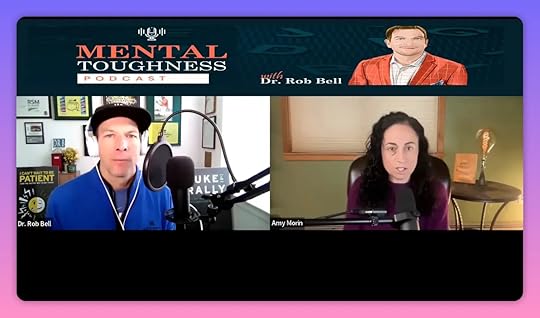
 Permission to laugh: why humor helps when you are grieving
Permission to laugh: why humor helps when you are grievingWe touched on an often-misunderstood coping resource: laughter. Amy explained that humor—especially dark or absurd humor—can coexist with grief and often provides essential relief. Laughing does not mean forgetting or disrespecting the lost person; it provides physiological and psychological respite.
Practical guidance:
Give yourself explicit permission to laugh and enjoy moments of lightness.Share funny memories about the person you miss to balance sorrow with warmth.Use humor deliberately as a short-term regulation tool when stress feels overwhelming.I emphasized on the Amy Morin- Mental Toughness Podcast that this is not avoidance; it is emotional regulation that preserves long-term functioning.
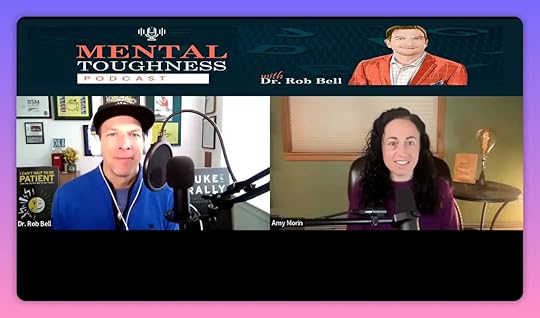
 Try something new: rebuilding identity after loss
Try something new: rebuilding identity after lossWhen life changes permanently, identity fragments: you are no longer the person who lived that previous life. Amy recommended intentionally adding new activities that reclaim a sense of aliveness and help form a new normal.
She used getting a motorcycle license as an example of a small, high-impact choice that creates momentum. I asked her why new experiences matter: they replace the vacuum of dropped rituals and allow identity to expand rather than contract.
How to choose a new activity:
Pick something that feels slightly out of reach but appealing.Ask a friend to join to reduce isolation and create accountability.Schedule it regularly so it becomes part of a new normal.On the Amy Morin- Mental Toughness Podcast this came across as a practical prescription: you do not erase the past by creating a future.
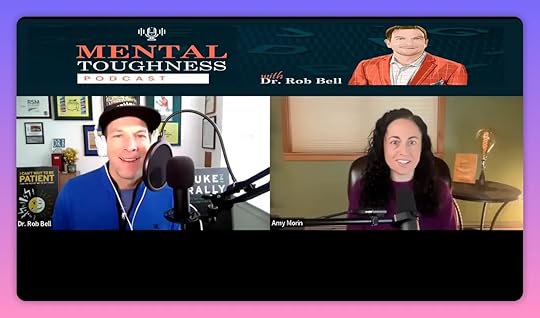
 The power of “don’t do” lists
The power of “don’t do” listsOne of the clearest takeaways from my conversation was the simplicity of a negative checklist: instead of starting a long list of what to do, write down what not to do when you are at your worst. That makes decisions simpler during emotional exhaustion.
Sample “don’t do” items you can adopt immediately:
Don’t ruminate about things you cannot change for more than 15 minutes a day.Don’t isolate from all social contact for multiple days—ask someone to check in.Don’t make major decisions (housing, job, relationships) during acute grief.Don’t engage in self-sabotaging behaviors as a way to punish yourself.I used this approach with guests on the Amy Morin- Mental Toughness Podcast to demonstrate how manageable limits are often more effective than aspirational lists.
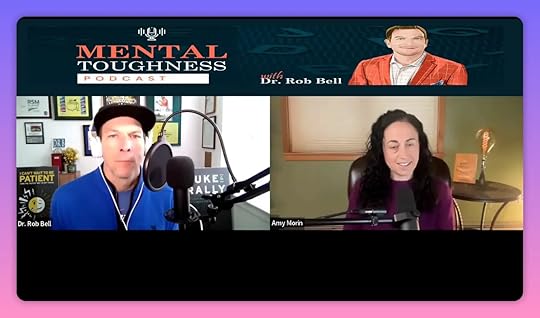
 Confidence, doubt, and how to act anyway
Confidence, doubt, and how to act anywayWe explored the paradox that confidence often follows repeated action, not the other way around. Amy stressed that belief in yourself matters because it determines whether you try again after setbacks.
Strategies to strengthen confidence:
Gather small wins. Track micro-progress to build evidence you can rely on.Reframe failure as data, not identity. Ask, “What did this teach me?” not “What does this say about me?”Write a short list of your top 10 reasons to pursue a goal and read it when doubt rises.I echoed on the Amy Morin- Mental Toughness Podcast that acting like the person you want to be will eventually produce the feelings associated with that identity.
 Common mistakes and pitfalls
Common mistakes and pitfallsWe identified several traps that stall progress. These are worth flagging because they recur frequently.
Believing thoughts are facts: Treat automatic negative thoughts as hypotheses, not truths.Waiting to feel ready: Waiting for motivation or emotion before acting keeps good intentions stuck indefinitely.Putting all emphasis on adding good habits: Without removing counterproductive behaviors, added habits get canceled out.Not designing return-to-work or support plans: Social awkwardness and unclear expectations increase stress when returning to normal responsibilities after loss.These are the same roadblocks Amy and I circled back to throughout the conversation on the Amy Morin- Mental Toughness Podcast.
 Quick checklist: 10 actions you can do today
Quick checklist: 10 actions you can do todayUse this compact checklist to convert the conversation into immediate steps.
Write a one-page “what not to do” list for days when you feel overwhelmed.Create one environmental change that makes a good habit easier (water bottle, workout clothes visible).Hide one temptation that consistently derails you.Schedule a 10-minute call with a supportive person—ask them to check in.List three small activities that would make you feel alive and schedule one this week.Write down your top 10 reasons for a current goal and keep that list visible.Agree on a simple work reentry plan with your manager if you will need one.Allow one moment today to laugh at something related to a difficult situation.Replace one negative self-statement with a factual reframe.Set a 15-minute “worry slot” so rumination does not dominate your day.I shared this checklist on the Amy Morin- Mental Toughness Podcast as a practical takeaway for listeners to act on immediately.
 How to keep practicing mental toughness
How to keep practicing mental toughnessFinally, Amy and I agreed that mental toughness is a practice, not a trait. The goal is incremental improvement through daily choices. Return to the three-part framework often:
Notice unhelpful thoughts and label them.Allow feelings but limit how long you dwell in them.Take small, consistent behaviors that align with the person you want to become.Make changes small, specific, and trackable. Over time those choices compound into confidence, resilience, and peace.
 Summary and next steps
Summary and next stepsMy conversation with Amy Morin on the Amy Morin- Mental Toughness Podcast highlighted straightforward, research-friendly strategies you can start today: design your environment, subtract what keeps you stuck, use short negative checklists during crisis, and treat confidence as a habit that grows through action. If you want one practical place to begin, write a one-page list of what not to do when you are at your worst and implement one environmental tweak this week.
If you found this summary useful, keep the checklist handy and try one item now. Resilience is built by daily choices more than by dramatic shifts, and the methods Amy laid out are intentionally small and accessible.

Dr. Rob Bell is a Sport Psychology Coach. DRB & associates coach executives and professional athletes. Some clients have included three different winners on the PGA Tour, Indy Eleven, University of Notre Dame, Marriott, and Walgreens.
Check Out All The Books
Keynote Speaking On Mental Toughness
Mental Toughness Podcast as we interview expert athletes and coaches about Mental Strength and their Hinge Moment.
New Blog Posts are published weekly.
Follow on Twitter @drrobbell
Follow on Instagram @drrobbell
January 24, 2026
15 Examples When Jesus Stopped To Help Others
When I got a flat tire during my 1st 1/2 Ironman and with nothing to change it, I figured my race was done. What I didn’t know, and couldn’t know, is that the flat tire changed my life!
Another racer stopped his own race and changed my tire!
And that moment allowed me to finish, but afterwards as I told people the story, the question echoed in my head, “Would you stop?” Up until that moment, the answer was “no!” As I explain in the book trailer video, it’s because I never even thought stopping!
But that Hinge moment changed my life! And it’s why I wrote the book, NO ONE Gets There ALONE!
My emphatic contention is that “would you stop” is a question that needs to be answered before it’s even asked! It’s a mindset that is
built by design, not by default.
Your default mode as well as mine, is to “protect yourself at all times” and that means to stay focused, get from point A to B as fast as possible, with little disruptions or inconveniences along the journey.
However, the reason to stop is simple.
We cannot help out others in life without also helping out ourselves.
It’s when we stop to give a thank you, text someone, help someone out, or provide a word of encouragement that our own attitude and outlook immediately changes. Our own issues and struggles will still be there, however, we get outside of our own head and when we return, we have a new perspective and enthusiasm needed.
So, what does that have to do with Jesus? Because on all of his journeys with his disciples in tow, Jesus didn’t hesitate!
Here’s 15 examples of when Jesus Stopped to help othersOn the way to heal Jairus’ dying daughter, Jesus stopped to speak with a woman who touched his cloak, restoring her before continuing the mission (Mark 5:25–34).Passing through Jericho, Jesus waited when blind Bartimaeus cries out, despite the crowd telling him to be quiet (Mark 10:46–52).While traveling between villages, Jesus broke away to heal ten lepers who call out to him from a distance (Luke 17:11–19).Entering the town of Nain, Jesus paused an unrequested funeral procession and raises a widow’s only son (Luke 7:11–15).While teaching in the synagogue, Jesus stopped to call forward a woman bent over for eighteen years and heals her publicly (Luke 13:10–13).Passing a tax booth, Jesus stopped and called Matthew to follow him, redirecting an entire life with a single sentence (Matthew 9:9).Walking through Jericho, Jesus stopped under a tree and calls Zacchaeus by name, choosing presence over progress (Luke 19:1–10).Moving through a pressing crowd, Jesus stopped when power leaves him and refuses to move on until the woman is seen and heard (Mark 5:30–33).On the road, Jesus stopped to touch and heal a man with leprosy, crossing social and religious boundaries (Mark 1:40–42).When children are brought to him, Jesus stopped the disciples from managing the interruption and re-centers the moment on the overlooked (Mark 10:13–16).During a dinner with religious leaders, Jesus stopped to defend a sinful woman who anoints his feet, reframing judgment into forgiveness (Luke 7:36–50).Late at night, Jesus stopped long enough to engage Nicodemus, a man full of questions but afraid to be seen asking them (John 3:1–21).After the resurrection, Jesus stopped on the road to Emmaus to walk with discouraged disciples, listening before revealing truth (Luke 24:13–32).At a Samaritan well, Jesus stopped to speak with a woman others avoided, turning a conversation into community transformation (John 4:4–26).While hanging on the cross, Jesus stopped to speak words of assurance to a dying thief beside him (Luke 23:39–43).


Dr. Rob Bell is a Sport Psychology Coach. DRB & associates coach executives and professional athletes. Some clients have included three different winners on the PGA Tour, Indy Eleven, University of Notre Dame, Marriott, and Walgreens.
Check Out All The Books
Keynote Speaking On Mental Toughness
Mental Toughness Podcast as we interview expert athletes and coaches about Mental Strength and their Hinge Moment.
New Blog Posts are published weekly.
Follow on Twitter @drrobbell
Follow on Instagram @drrobbell
January 21, 2026
9 Lessons from a Champion: Mental Toughness Podcast Insights from Maureen Shea
I interviewed Maureen Shea because she is a champion boxer. I wanted her on The Mental Toughness Podcast because it forces me to learn from people who have stared down hard, unexpected defeats and kept going.
This episode — a long conversation with Maureen Shea — landed like a roadmap: identity, crisis, small hinge moments, and the daily practices that build resilience. I’m sharing what I pulled from that episode and how you can apply the lessons whether you coach athletes, mentor young people, or just want a better way to face pressure.
The mental toughness podcast highlights: the fight is rarely only inside the ring.
The Mental Toughness Podcast episode with Maureen repeatedly shows how life outside the arena shapes what happens inside it. I’ll use that frame to organize nine practical lessons that helped me understand why Maureen became “the real million-dollar baby” and how she turned trauma into fuel.
Table of Contents1. Identity Is a Double-Edged Sword2.
Identity Is a Double-Edged Sword2.  When You Give Power Away, It’s Easier to Get It Back3.
When You Give Power Away, It’s Easier to Get It Back3.  Movement Is Medicine — Start Small4.
Movement Is Medicine — Start Small4.  Hinge Moments Don’t Look Like Hollywood5.
Hinge Moments Don’t Look Like Hollywood5.  Faith and a Bigger Story Can Carry You6.
Faith and a Bigger Story Can Carry You6.  Resilience Is Built, Not Born7.
Resilience Is Built, Not Born7.  Healthy Discomfort Versus Unhealthy Danger8.
Healthy Discomfort Versus Unhealthy Danger8.  Mentoring and Giving Back Heals the Mentor9.
Mentoring and Giving Back Heals the Mentor9.  Identity After Retirement Is Serious Work1.
Identity After Retirement Is Serious Work1.  Identity Is a Double-Edged Sword
Identity Is a Double-Edged SwordGrowing up in a mixed Irish–Mexican family in the Bronx, Maureen learned early that identity can feel fractured. She spoke about being different and how that difference was both isolating and, eventually, powerful.
I recognized this: identity often becomes the lens through which we interpret every failure and success.
If identity feels like a weakness, it will behave like one.
If you reframe identity as a deep resource — cultural fluency, survivor mentality, or simply stubbornness — it becomes fuel.
Maureen’s bilingualism and border-crossing upbringing quietly primed her to connect with coaches, to improvise, and to keep showing up when others would have quit.
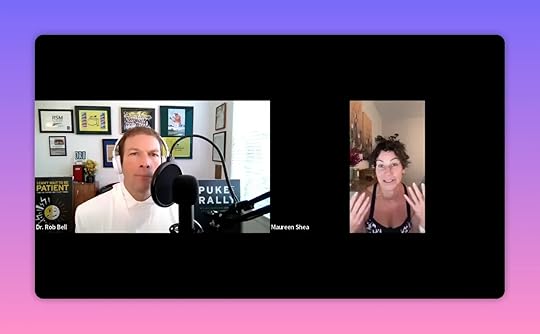
The Mental Toughness Podcast shows that how you tell your story matters. I try to ask myself: is my identity an explanation or an engine?
2. When You Give Power Away, It’s Easier to Get It Back
When You Give Power Away, It’s Easier to Get It BackOne line from the interview stopped me cold: “When you give it away, it’s easier to get it back, but when it’s taken away from you, it’s harder to get back.” That sentence reframes personal responsibility without blame. It’s not a moral judgment; it’s a map for reclaiming agency.
“When you give it away, it’s easier to get it back, but when it’s taken away from you, it’s harder to get back.”
Maureen talked candidly about an abusive relationship, codependency, and how she later had to interrogate her own choices. On the Mental Toughness Podcast she didn’t offer platitudes. Instead she described the practical work: therapy, boundary-setting, choosing to move, and creating rituals that signal “I am mine again.”
If you’ve ever felt powerless, start with one small decision you can own today. Power is not a single victory. It’s a trail of intentional moments.
3. Movement Is Medicine — Start Small
Movement Is Medicine — Start SmallMovement repeated as a theme. Maureen traced her early life energy to endless laps around the house and an insistence from her parents to channel restless energy into sport. Later, movement helped her through depression and eating disorders.
On the Mental Toughness Podcast she said something I still repeat to people I coach: movement doesn’t promise instant identity change, but it reliably alters mood and self-trust. A walk, a ten-minute set of squats, or a short run is not a cure, but it is an opening move.
Practical: Set a five-minute movement goal you can do today.Why it helps: Physical action creates proof. You become someone who shows up.4. Hinge Moments Don’t Look Like Hollywood
Hinge Moments Don’t Look Like HollywoodThe place where Maureen’s path changed wasn’t a dramatic movie montage. It was literally the back of a gym — she followed a sound, found a ring, and a trainer asked if she wanted to try. That moment led her to training, to being discovered, and eventually to world title fights.

The Mental Toughness Podcast teaches me to scan for hinge moments: opportunities that are small and available right now. The key is not just waiting for them but being curious enough to step into the unknown when they appear.
5. Faith and a Bigger Story Can Carry You
Faith and a Bigger Story Can Carry YouMaureen’s faith was not a decoration.
It was practical scaffolding. She described moments where a quiet belief — that she was prayed for, that life had a plan — kept her from making the final, fatal choice during suicidal despair.
On the Mental Toughness Podcast this came through as neither proselytizing nor platitude. Faith functioned as a narrative lens that reduced isolation and made small steps meaningful. If you don’t identify with religious faith, substitute any steady meaning maker: a purpose statement, a mentor, or a community that holds you accountable.
6. Resilience Is Built, Not Born
Resilience Is Built, Not BornShe lost her first title opportunity under brutal circumstances: a blown eardrum, disorientation, and a stoppage with 30 seconds left in the fight. She lost again soon after. These were not career-ending defeats. They were forging heat.
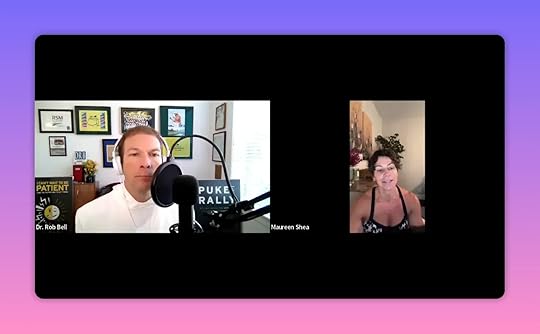
The Mental Toughness Podcast highlights that the sign of a resilient athlete is not an undefeated record. It’s how they return to the gym the next day, how they rewrite the narrative, and how they build reliability by doing small tasks well for a long time.
Practice: After any setback, list three practical next steps and do at least one of them today.Result: Action dissolves rumination and creates new memory traces of competence.7. Healthy Discomfort Versus Unhealthy Danger
Healthy Discomfort Versus Unhealthy DangerMaureen made a useful distinction: some discomfort is growth, some is harm. Stepping into a boxing gym, feeling the burn of hard work, and accepting temporary soreness are healthy. Staying in an abusive relationship is unhealthy and damaging by design.
The Mental Toughness Podcast episode forces a key question: what discomfort am I signing up for? Is it necessary friction or slow erosion? The answer determines whether the struggle will strengthen or destroy you.
8. Mentoring and Giving Back Heals the Mentor
Mentoring and Giving Back Heals the MentorMaureen now coaches, commentates, and mentors. She told stories of putting post-it notes on her bathroom mirror reading “You are valuable. You are loved. You are beautiful.” Those rituals are simple, but passing them on to others gives them new depth.
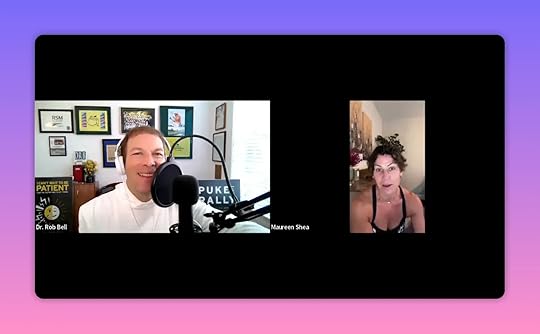
The Mental Toughness Podcast repeatedly demonstrates that teaching someone else a skill clarifies that skill for you. When I mentor, I notice my own blind spots and rebuild confidence on a firmer foundation.
9. Identity After Retirement Is Serious Work
Identity After Retirement Is Serious WorkMaureen reflected on athletes who struggle when the fight ends. A fighter’s identity can be all-consuming. When the arena no longer defines you, the transition can be brutal.
The Mental Toughness Podcast episode reminded me that preparing for exit is part of being a mature competitor. That can mean building a second skill, nurturing relationships outside the sport, or finding causes that give a new kind of fulfillment.
How I Use These Lessons in PracticeStart with one small action: a five-minute walk after a setback.Reframe identity as resource: list three things your background gives you.Choose healthy discomfort: write down what growth looks like and what harm looks like.Give one thing away: mentor or teach something small and notice how it steadies you.I come back to the Mental Toughness Podcast not because it glorifies toughness but because it restores nuance. Toughness without tenderness leads to burnout. Resilience without reflection leads to repeating mistakes. Maureen’s story is messy, powerful, and instructive. She teaches the two most important habits of elite performers: keep going and keep doing the inner work.
If you remember nothing else from this episode, remember this: the fight you win most often is the one you choose to fight again. That choice looks small. It looks like a gym at the end of a city block, it looks like a post-it note on a mirror, and it looks like taking one step when you want to stop. That is the work the Mental Toughness Podcast highlights and the work Maureen Shea modeled with courage.
I keep a note in my journal with one of Maureen’s lines: “Start over every day. Every second you can start again.” It’s practical, merciful, and true.

Follow that structure and you will find hinge moments. You will still get knocked down, but you will also learn how to stand back up differently each time.

Dr. Rob Bell is a Sport Psychology Coach. DRB & associates coach executives and professional athletes. Some clients have included three different winners on the PGA Tour, Indy Eleven, University of Notre Dame, Marriott, and Walgreens.
Check Out All The Books
Keynote Speaking On Mental Toughness
Mental Toughness Podcast as we interview expert athletes and coaches about Mental Strength and their Hinge Moment.
New Blog Posts are published weekly.
Follow on Twitter @drrobbell
Follow on Instagram @drrobbell
January 4, 2026
Scarlett Schremmer on the Mental Toughness Podcast
I invited Scarlett Schremmer onto the podcast because her story lives at the intersection of surfing, family, faith, and elite golf.
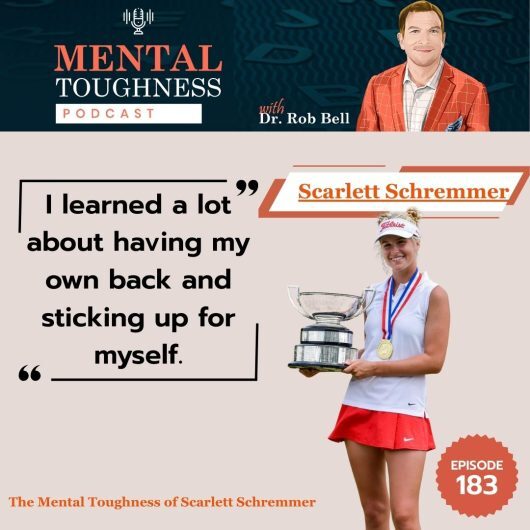
On the mental toughness podcast I asked about the moments that shaped her approach to competition, and I found her practical understanding of the game to be impressive. This post pulls together the mental habits, practice frameworks, and life lessons Scarlett uses to perform under pressure and keep perspective.
Table of Contents Beginnings: Hawaii, Surfing, and a Competitive DNA
Beginnings: Hawaii, Surfing, and a Competitive DNA From Wave Balance to Swing Balance
From Wave Balance to Swing Balance Training Smart: Productivity, Power, and Recovery
Training Smart: Productivity, Power, and Recovery The Mental Game: Damage Control and Trusting Intuition
The Mental Game: Damage Control and Trusting Intuition Coaches, Teams, and the Power of Environment
Coaches, Teams, and the Power of Environment Faith, Family, and Perspective
Faith, Family, and Perspective Recruiting, College, and Finding the Right Fit
Recruiting, College, and Finding the Right Fit Messages for Young Players
Messages for Young Players Final Thoughts from the Podcast Host
Final Thoughts from the Podcast Host Beginnings: Hawaii, Surfing, and a Competitive DNA
Beginnings: Hawaii, Surfing, and a Competitive DNAScarlett Schremmer grew up in Hawaii, competing in surf contests almost every weekend from age five to twelve. That early immersion taught her two things that now define her golf: an acceptance of risk and a comfort performing alone under pressure.
She described how the sibling training dynamic—with sisters who became pro surfers—created relentless daily work but also a protective bond that made competing feel purposeful rather than lonely.
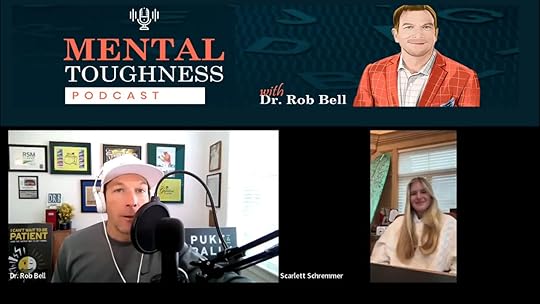
Surfing at places like Snapper Rocks taught Scarlett to read conditions, manage fear, and act decisively. A childhood shark encounter at Snapper Rocks still surfaces in her recollections: the adrenaline rush hardened her ability to stay calm when things go sideways—an asset she later leaned on at Augusta and other golf events.
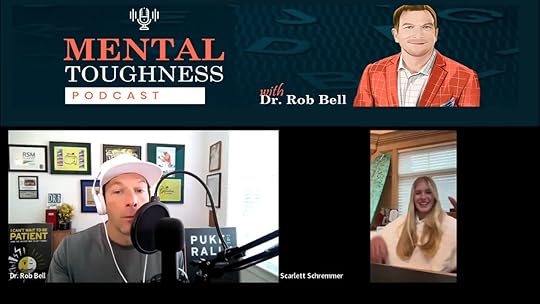
 From Wave Balance to Swing Balance
From Wave Balance to Swing BalanceMovement and balance from surfing translated into a surprising advantage for Scarlett’s swing. She credits time in the gym with her surf coach for developing lower-body strength and balance. But more than biomechanics, the competitive experience mattered most. Competing in solo sports—surfing and golf—teaches a mental rhythm: focus on process, execute the next action, and move on.
Scarlett Schremmer told me, “Competing is competing.”
That simple truth is why she could pick up golf tournaments at 13 or 14 and feel comfortable in pressure moments; she had already learned how her mind behaves under stress.
 Training Smart: Productivity, Power, and Recovery
Training Smart: Productivity, Power, and RecoveryScarlett’s approach to practice emphasizes productive work over mindless volume. With a trainer named Tyler she focuses on explosive lifts and box jumps to increase speed and power in the swing. Those short, high-quality sessions are paired with deliberate recovery—time away from the course where she truly detaches and refuels emotionally by reading, playing with her dog, and going to church.
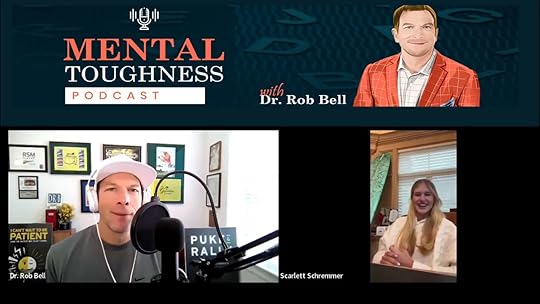
Key practice takeaway: measure productivity not by hours but by outcomes. When Scarlett Schremmer is on the course she has “blinders on”—full commitment during training and full recovery afterward.
 The Mental Game: Damage Control and Trusting Intuition
The Mental Game: Damage Control and Trusting IntuitionOne of the most useful tactical tools Scarlett described is what she calls “damage control golf.” With Coach Zambry and the U.S. National Junior Team she learned processes to manage the days when the swing betrays intent: pick targets, accept your misses, and plan the next shot accordingly.
“You don’t always have to get rid of the miss. You just have to know what it’s going to be and sometimes you need to know when it’s coming.”
That philosophy reframes mistakes as data.
Scarlett Schremmer has a mental toughness that is evident that she trusts her intuition when the feel is off—clubbing up or down, playing away from trouble, or leaning into a controlled shot. Knowing your predictable misses makes you more resilient and strategic on the course.
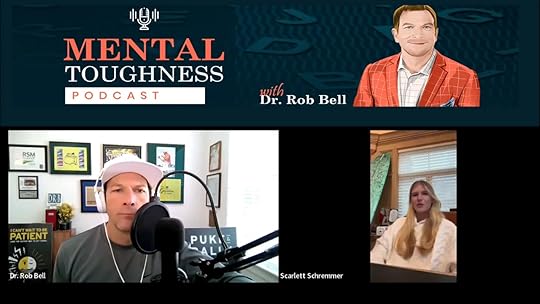
 Coaches, Teams, and the Power of Environment
Coaches, Teams, and the Power of EnvironmentScarlett credits the U.S. National Junior Team and coaches like Zambry with elevating her game beyond mechanics. The team setting forced honest comparisons and created standards that pushed her to improve. Zambry’s testing identified clear priorities—short game strength, long-iron work—and Scarlett used that feedback to structure practice and fitness.
She also learned that belief matters. Being in an environment where people truly back you builds the mental toughness needed to handle college and national competition. I asked how much that environment changed her. She was candid: it made her tougher, forced consistency in practice, and taught her how to compartmentalize the chaos off the course so she could focus on the work at hand.
 Faith, Family, and Perspective
Faith, Family, and PerspectiveBeyond swing changes and gym sets, faith and gratitude are central to Scarlett’s resilience. She described growing closer to her faith in the last few years and using it as an anchor when golf felt overwhelming. Family—especially her mother, a former LPGA player—provided practical coaching and the emotional scaffolding to push through hard stretches. Scarlett learned to “stack days” and see each practice as an investment, not a burden.
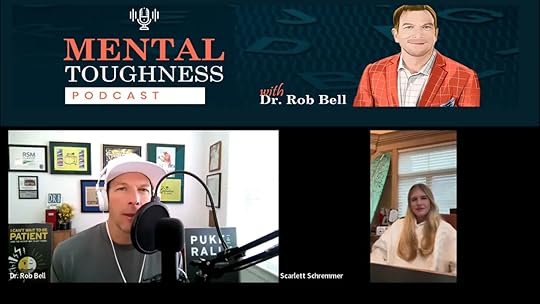
 Recruiting, College, and Finding the Right Fit
Recruiting, College, and Finding the Right FitRecruiting came fast and loud for Scarlett Schremmer. She originally committed to Miami, then navigated offers from Texas, Texas A&M, and others. The process taught her to prioritize environments where coaches and teammates believe in her. Her time at Texas A&M gave her structure and discipline, but she realized she needed balance: life outside golf reduces overthinking and protects long-term joy for the sport.
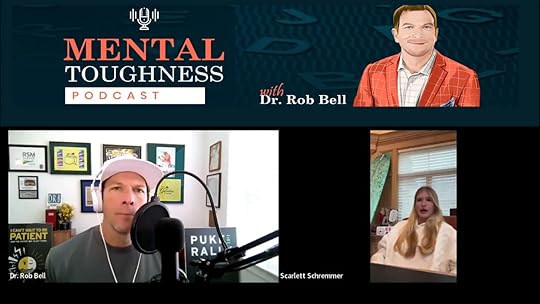
 Messages for Young Players
Messages for Young PlayersScarlett’s advice for kids dreaming of elite golf is both realistic and hopeful. She insists that talent is not the whole story: persistence, daily improvements, and patience are what separate long-term winners. She encourages young players to:
Visualize small successes to build motivation.Learn your misses and plan around them.Keep perspective—family and balance matter more than trophies.Own the process—no one can take your game away from you if you keep improving.I asked about whether she loves winning more than she hates losing. Her answer revealed a mature approach: loving the chase is stronger than fear of loss, and she won’t beat herself up if she knows she gave everything to the process.
 Final Thoughts from the Podcast Host
Final Thoughts from the Podcast HostAs the host I can say this: conversations like the one I had with Scarlett are why I produce the mental toughness podcast. Scarlett Schremmer has a mix of competitive fire, practical process, faith, and family perspective makes her not only a compelling athlete but a model for anyone chasing excellence in any field. I found her understanding of the game to be impressive—she balances technical work with emotional resilience in a way many players only learn later in their careers.
What should young golfers focus on first?Build daily habits that produce small, measurable improvements. Focus on short game, fitness, and mental routines that help you manage pressure.
How did surfing help Scarlett in golf?Surfing developed balance, leg strength, and a calmness under risk. The competition experience taught her how her mind behaves under pressure, which transferred directly to golf.
How does Scarlett avoid burnout?By focusing on productive practice, scheduling recovery away from the course, and maintaining interests—family time, faith, and hobbies—that keep golf in perspective.
Why is environment important in college recruiting?A supportive environment with coaches and teammates who believe in you accelerates development. It provides structure, honest feedback, and emotional support when competition gets hard.
What simple mental tool does Scarlett use during bad days?Damage-control golf: pick safe targets, accept predictable misses, and plan the next shot to minimize harm and create a pathway back to scoring.
Book Dr. Rob Bell To Speak“Let’s chat”
Click here

Dr. Rob Bell is a Sport Psychology Coach. DRB & associates coach executives and professional athletes. Some clients have included three different winners on the PGA Tour, Indy Eleven, University of Notre Dame, Marriott, and Walgreens.
Check Out All The Books
Keynote Speaking On Mental Toughness
Mental Toughness Podcast as we interview expert athletes and coaches about Mental Strength and their Hinge Moment.
New Blog Posts are published weekly.
Follow on Twitter @drrobbell
Follow on Instagram @drrobbell
December 15, 2025
Mental Toughness Keynote Speaker: Why Teams Hire Us to Build Resilience
We believe mental toughness is not a skill you add on top of training; it is a way of removing what gets in the way so your people can perform when the stakes are highest.
Hiring a mental toughness keynote speaker changes how we think about pressure, setbacks, and the hinge moments that define careers and company culture. When we bring a mental toughness keynote speaker into our organization, we are investing in a methodical, repeatable approach to performing our best under pressure.
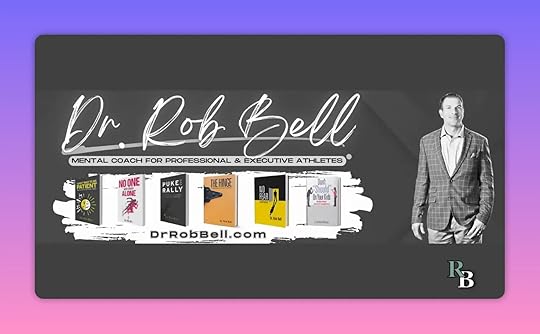 Table of Contents
Table of Contents The mental game is subtraction, not addition
The mental game is subtraction, not addition Preparing for hinge moments
Preparing for hinge moments

 The puke-and-rally mindset
The puke-and-rally mindset No one gets there alone
No one gets there alone Why hire a mental toughness keynote speaker for our business or team?
Why hire a mental toughness keynote speaker for our business or team? Practical framework we implement after the keynote
Practical framework we implement after the keynote Our closing case for hiring a mental toughness keynote speaker
Our closing case for hiring a mental toughness keynote speaker The mental game is subtraction, not addition
The mental game is subtraction, not additionToo often we preach more—more drills, more pep talks, more checklists.
What we need is less: fewer distractions, fewer fear-based thoughts, fewer habits that drain our focus. We use endurance sport metaphors because they are brutally honest. On a 100-mile race the winner is often the one who removes the mental clutter and stays simple.
When we hire a mental toughness keynote speaker, we expect a roadmap for subtraction—practical steps to strip away what does not contribute to success so the core work can shine.
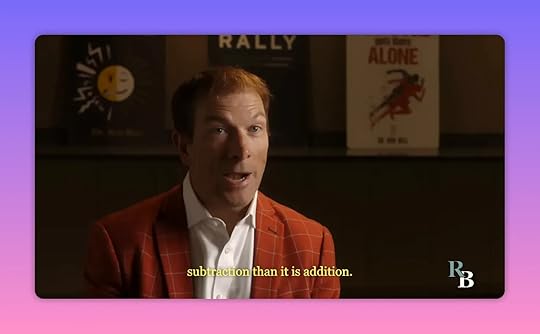
Practical takeaway: Identify two persistent thought patterns or routines that reduce performance and build a one-line plan to eliminate them this quarter. That is subtraction in action.
 Preparing for hinge moments
Preparing for hinge momentsHinge moments are the events, conversations, or injuries that change everything.
Some are tragedies that force an immediate pivot. Others are subtle opportunities that become turning points because we were ready. We prepare not by trying to predict every scenario but by training a simple mental framework that snaps into place when the hinge arrives.
“We are always trying to prepare for that hinge moment, that one moment, one event, one person that’s going to make all the difference.”
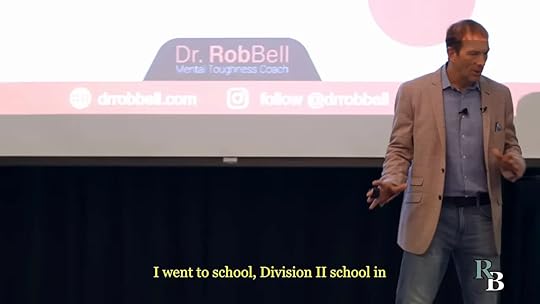
We teach teams to rehearse hinge-ready responses: short scripts, anchor breaths, and a “what’s next” checklist. Those tools compress decision time and reduce wasted emotion so that performance becomes repeatable even under pressure.


 The puke-and-rally mindset
The puke-and-rally mindsetSetbacks are not story endings; they are chapters. The puke-and-rally mindset is a direct, slightly blunt way to say: we will feel the failure, we will process the pain, and then we will rally. It is not about pretending the setback didn’t happen. It is about structuring the comeback.
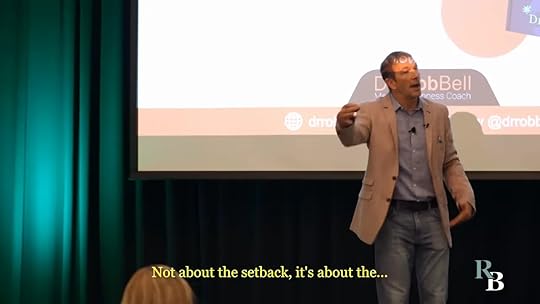
We coach teams to convert setbacks into actionable rebound plans. A rebound plan has three parts: acknowledgement, small corrective actions, and an immediate next performance target. That structure prevents rumination and channels energy into repair and forward motion.
 No one gets there alone
No one gets there aloneHigh performance is a team sport!
We need colleagues who support, competitors who challenge, and leaders who make space for both. One of the most valuable outcomes when we bring in a mental toughness keynote speaker is the cultural shift from isolated heroics to interdependent excellence.
“No one gets there alone.”
We cultivate what we call the triple support system…Together they create a feedback loop that accelerates growth and protects against solitary failure.
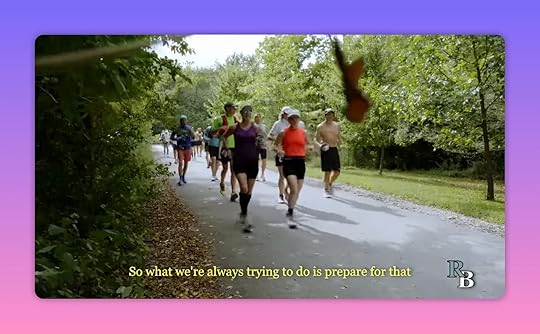
 Why hire a mental toughness keynote speaker for your business or team?
Why hire a mental toughness keynote speaker for your business or team?When we consider speakers for corporate or team events, we need measurable impact. A mental toughness keynote speaker offers more than inspiration; we get frameworks, language, and practices that scale across a department or an entire company.
Immediate, usable tools — Audiences leave with short, specific practices they can use that afternoon and the following week.Cultural activation — The talk becomes a launchpad for campaigns, workshops, and ongoing coaching that embed mental toughness into everyday workflows.Leadership alignment — Leaders receive a shared vocabulary and set of expectations so performance standards are consistent across teams.Resilience under pressure — We see faster recoveries from setbacks and clearer decision-making when stakes are high.Proven credibility — We want a speaker who has both lived and coached elite performers; that translates to trust and faster adoption.How this translates to ROIInvesting in mental toughness is an investment in fewer blown deadlines, higher retention, improved team cohesion, and better outcomes in critical moments like launches, negotiations, and competitive pitches. When we measure before-and-after metrics—employee engagement, error rates, time-to-rebound after setbacks—we often see tangible improvement within months.
 Practical framework we implement after the keynote
Practical framework we implement after the keynoteWe don’t leave it as a one-off event. The best outcomes come from pairing a keynote with a rolling plan. Here is a simple sequence we use:
Anchor language — Agree on two phrases the team will use to reset under pressure.Subtraction list — Each team member identifies one habit to remove and one habit to replace.Hinge rehearsal — Role-play a likely high-stakes scenario for three minutes.Peer support pairings — Establish pairs for weekly check-ins focused on rebound and growth.Measurement plan — Define three metrics to track over 90 days that reflect improved toughness.These steps make the keynote the start of a momentum cycle, not a single motivational hit.
 Our closing case for hiring a mental toughness keynote speaker
Our closing case for hiring a mental toughness keynote speakerWe want speakers who move teams from theory to practice. A mental toughness keynote speaker gives us a philosophy and a playbook: how to remove the noise, prepare for hinge moments, rebound from setbacks, and build interdependent teams that perform under pressure. If we are serious about improving outcomes when it matters most, bringing that expertise to our leadership and teams is one of the highest-leverage moves we can make.
We should expect a partner who not only motivates but also helps us implement—someone who leaves behind tools, language, and a plan so the organization continues to get mentally tougher long after the stage lights go down.
Book Dr. Rob Bell To Speak“Let’s chat”
Click here

Dr. Rob Bell is a Sport Psychology Coach. DRB & associates coach executives and professional athletes. Some clients have included three different winners on the PGA Tour, Indy Eleven, University of Notre Dame, Marriott, and Walgreens.
Check Out All The Books
Keynote Speaking On Mental Toughness
Mental Toughness Podcast as we interview expert athletes and coaches about Mental Strength and their Hinge Moment.
New Blog Posts are published weekly.
Follow on Twitter @drrobbell
Follow on Instagram @drrobbell
November 19, 2025
How Cameron Balser Rewires Pain, Intuition, and Purpose
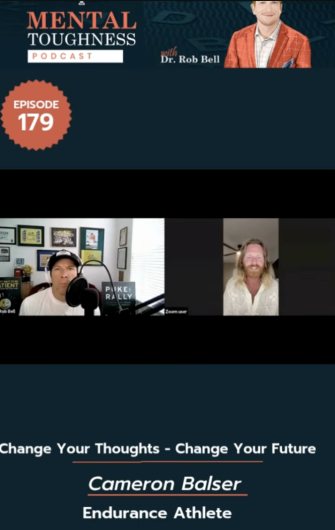
Cameron Balser turned a breakdown into a border-to-border breakthrough.
Known for running the entire perimeter of the United States—solo, self-supported, and hauling a cart for months—Cameron Balser offers a crisp lesson: change your thoughts and change your future. This is not a backpacking brochure. It is a call to arms for anyone tired of living inside other people’s expectations and ready to test their own limits with humor, heart, and a stubborn refusal to quit.
Table of Contents Nature as Home Base
Nature as Home Base Community, Surprise, and the Prairie on Fire
Community, Surprise, and the Prairie on Fire The Hinge Moment: Choosing to Live
The Hinge Moment: Choosing to Live Trusting Intuition: Where Joy Lives
Trusting Intuition: Where Joy Lives Forgiveness as a Radical Strategy
Forgiveness as a Radical Strategy Problem-Solving on Four Wheels (and Duct Tape)
Problem-Solving on Four Wheels (and Duct Tape) Hinge Moments Multiply: The Speed Project
Hinge Moments Multiply: The Speed Project Where the Love Comes From
Where the Love Comes From Final Challenge: Practice Small Audacity
Final Challenge: Practice Small Audacity Nature as Home Base
Nature as Home BaseCameron Balser finds peace in the radical simplicity of nature.
For him, running is more than cardio; it is communion. He describes how days alone on the road never felt lonely because the world around him—trees, sun, wind—acted like a reminder that perception shapes reality.
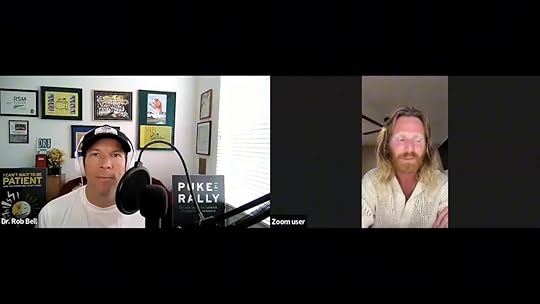
When the mind quiets, perspective returns. Cameron uses grounding rituals—sometimes removing shoes and feeling the earth—to reconnect with something larger than anxiety or Instagram algorithms. It’s the psychological equivalent of turning off notifications and actually enjoying coffee while it is still hot.
 Community, Surprise, and the Prairie on Fire
Community, Surprise, and the Prairie on FireEven solo explorers discover they are not alone. At Prairie on Fire, Cameron Balser watched groups transform: people who had never run more than a few miles finishing marathons or 100-mile loops, under a moon bright enough that headlamps felt optional.
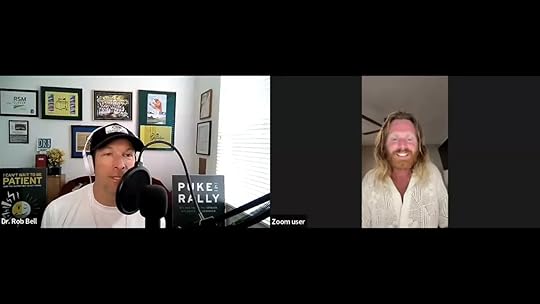
Those shared nights produce a useful truth: people are mirrors. The energy someone brings into a tent or aid station returns in unexpected kindness. Cameron’s journey was peppered with strangers offering meals, lifts, and tire replacements—evidence that generosity is often a two-way street. If you want help, try doing something hard first; the universe seems to notice effort.
 The Hinge Moment: Choosing to Live
The Hinge Moment: Choosing to LiveIn 2017, Cameron Balser reached a hinge moment. He hit a depth that most avoid naming: he no longer wanted to exist in the same way. What followed was not a dramatic overnight rescue but a methodical reorientation of thought.
“I changed my thoughts and it changed my life.”
That sentence is deceptively simple and deliberately challenging. Thoughts are not just private fluff; they are the architecture of action. Cameron made small, deliberate choices—eating better, trusting his instincts, and letting go of what he couldn’t control. Those tiny decisions compounded into a life reconfigured around purpose and presence.
 Trusting Intuition: Where Joy Lives
Trusting Intuition: Where Joy LivesTrusting the gut is not mystical fluff when practiced daily. Cameron Balser credits intuition for crucial decisions, including the choice to walk away from a relationship that no longer allowed unconditional love. That painful step opened doors: the cross-country circumnavigation, unexpected sponsorships, and the deeper recognition that the internal compass often points truer than external advice.
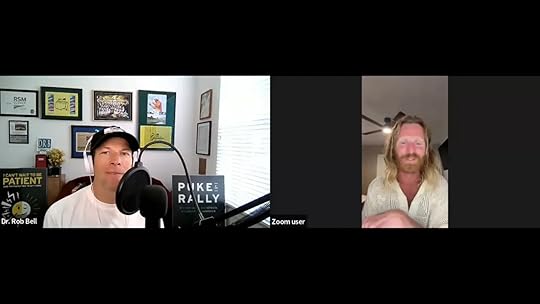
Practical takeaway:
Listen first: quiet the opinions, then notice the pull in your chest.Test gently: trust won’t be perfect, but small bets build confidence.Be willing to pivot: when intuition and fear disagree, follow curiosity. Forgiveness as a Radical Strategy
Forgiveness as a Radical StrategyCameron speaks about forgiveness not as a platitude but as a survival skill. He shares personal history—being sexually assaulted—and frames forgiveness as a choice to break cycles of harm. Forgiveness does not mean forgetting or staying in toxic patterns; it means refusing to pass pain forward.
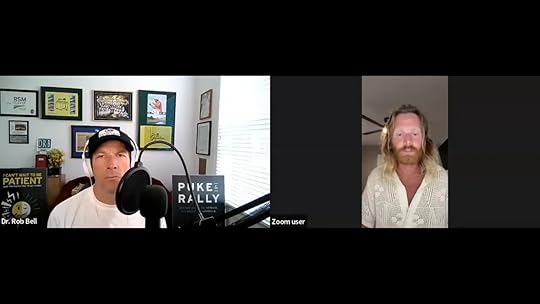
Holding resentment is like carrying a second cart—unnecessary weight that slows progress. Cameron challenges others to view forgiveness as ongoing work: sometimes a daily ritual, sometimes a hard conversation, sometimes a boundary that protects the heart.
 Problem-Solving on Four Wheels (and Duct Tape)
Problem-Solving on Four Wheels (and Duct Tape)Running 11,000 miles with a 50 to 60-pound cart is an engineering challenge. Tires fail. Supplies dwindle. Cameron Balser learned to solve problems creatively: duct-taping tires, asking for help, and reframing each breakdown as a story in the making.
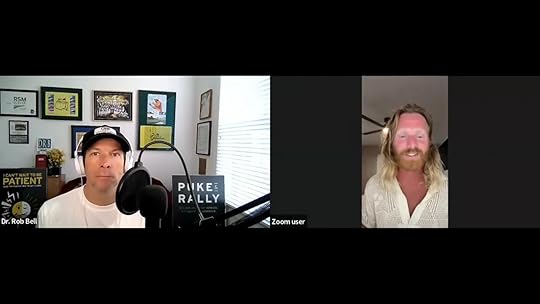
Key lesson: when essentials are food, water, and shelter, the rest becomes optional. That stripped-down worldview produces calm. It also forces cleverness. If a solution is not obvious, invent one—and be ready to accept help when it arrives. No person is an island; even island runners accept rides occasionally.
 Hinge Moments Multiply: The Speed Project
Hinge Moments Multiply: The Speed ProjectMid-journey, Cameron took an invitation to the Speed Project: a 300-mile race that required a short sprint and a long endurance heartbeat. He ran 40 miles a day to arrive, raced hard, took two days to recover, and then kept going. The experience crystallized a larger truth: opportunities show up when courage meets availability.
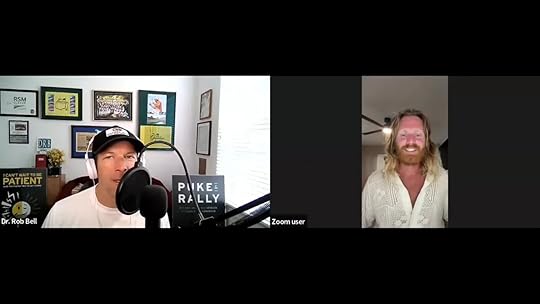
Open doors are often disguised as extra work. The challenge is to say yes more often—and to be willing to finish what you start.
 Where the Love Comes From
Where the Love Comes FromCameron Balser credits much of his capacity for unconditional love to his mother. Her example taught him to love without expectation. That upbringing became the scaffolding for his public generosity and the quiet patience he shows others on the road.
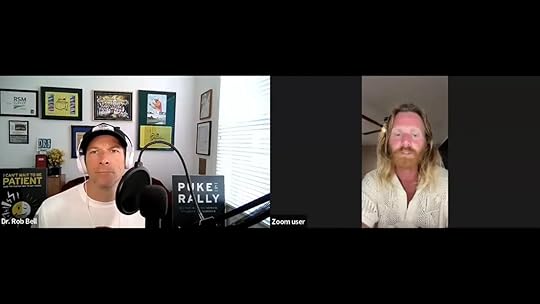
This is a reminder that great endurance feats are built on small, consistent acts of care, often supplied by one person who believes in you before the crowd notices.
 Final Challenge: Practice Small Audacity
Final Challenge: Practice Small AudacityCameron Balser’s story is an invitation, not a blueprint. You do not need 11,000 miles to test a truth. Start with a single audacious thing: say no to what drains you, forgive one person (including yourself), trust your gut on a small decision, or unplug for a morning and feel the ground.
“It’s always going to work out. If it hasn’t, it’s just not the end.”
That line is both comfort and dare. If comfort is your goal, keep scrolling. If growth bothers you in the best possible way, take one step today.
Practical Sprint PlanDay 1: Practice 15 minutes barefoot grounding or quiet walking.Day 3: Make one decision based on gut, not logic, and note the result.Day 7: Reach out and offer help or accept it—test the mirror effect.If Cameron Balser teaches anything about mental toughness, it is that the edge of life is where clarity lives.
Run toward it. Laugh when the cart needs duct tape.
Forgive, love, and keep moving.

Dr. Rob Bell is a Sport Psychology Coach. DRB & associates coach executives and professional athletes. Some clients have included three different winners on the PGA Tour, Indy Eleven, University of Notre Dame, Marriott, and Walgreens.
Check Out All The Books
Keynote Speaking On Mental Toughness
Mental Toughness Podcast as we interview expert athletes and coaches about Mental Strength and their Hinge Moment.
New Blog Posts are published weekly.
Follow on Twitter @drrobbell
Follow on Instagram @drrobbell
October 20, 2025
How to Win a Back-Yard Ultra | Dr. Rob Bell Sport Psychology Coach
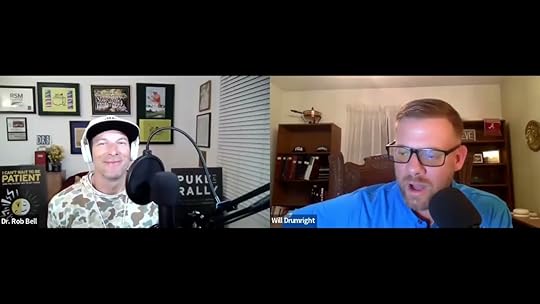
 Introduction
Introduction Race Format & Why I Signed Up
Race Format & Why I Signed Up Preparation, Teamwork, and the Details
Preparation, Teamwork, and the Details Race Day: Highs, Lows, and the Hinge Moment
Race Day: Highs, Lows, and the Hinge Moment Solitude, Spiritual Moments & The Midnight Birthday
Solitude, Spiritual Moments & The Midnight Birthday Debrief & Lessons Learned
Debrief & Lessons Learned Mental Strategies & Practical Takeaways
Mental Strategies & Practical Takeaways Conclusion
Conclusion Watch the full episode
Watch the full episode Introduction
IntroductionI’m Dr. Rob Bell Sport psychology Coach based in the Indianapolis area. In this interview I recap my experience at the Prairie on Fire Backyard Ultra — a race I discussed in my Mental Toughness podcast episode. As a sport psychology coach, 8x author and athlete, I approached this event with a year of focused preparation and a mindset tuned to endurance, teamwork, and the little details that keep you moving.
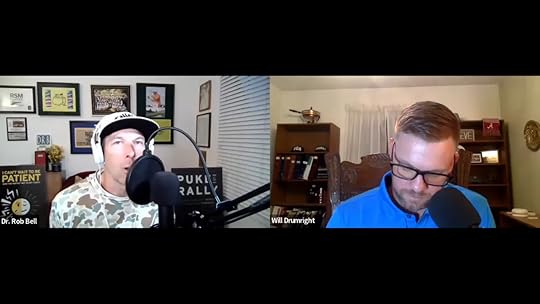
 Race Format & Why I Signed UpWhat is the Prairie on Fire Backyard Ultra and why did you choose this format?
Race Format & Why I Signed UpWhat is the Prairie on Fire Backyard Ultra and why did you choose this format?The Backyard Ultra is a simple-but-sadistic format: a 4.1-mile loop every hour, and you must be back at the start at the top of the hour. It keeps going until one runner remains. I signed up because it was as close to a “backyard” start as I could get and because the format rewards persistence over pure speed — you don’t have to be the fastest, you just can’t quit.
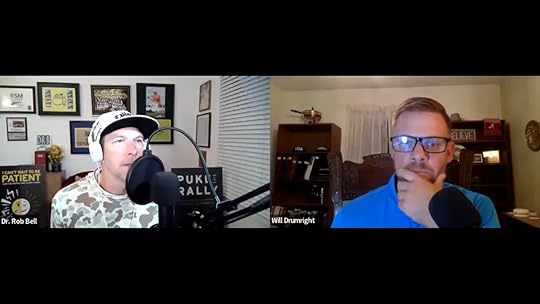
I used rate of perceived exertion (RPE). My target was an RPE of 2 — easy, conversational effort. That meant coming in around 52–53 minutes per loop, giving time to stretch, refuel and reset. Simple planning like that kept me feeling fresh even after a marathon’s worth of loops.
 Preparation, Teamwork, and the DetailsWhat did your physical and mental preparation look like?
Preparation, Teamwork, and the DetailsWhat did your physical and mental preparation look like?I trained all year specifically for this race: higher mileage, strength work, strategic long runs (two separate six-hour training runs, one in Florida and one at the course), and sleep prioritization. I also worked with a coach to avoid overtraining — availability is the best ability. The phrase I kept coming back to was: we play like we train, we race like we train.
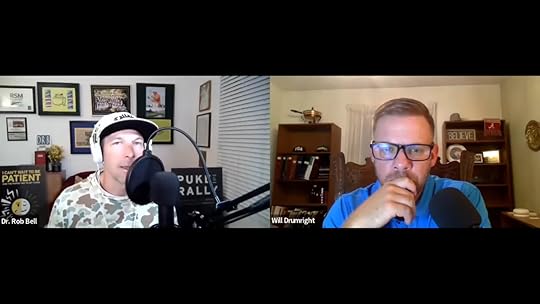
Extremely. This event is unique because you see your crew every hour. My wife and kids were my pit crew; we rehearsed exact routines for hydration, nutrition, sock changes, and quick stretches. Their presence kept me honest and pushed me farther — no one gets there alone. The team aspect turned individual endurance into a family effort.
Any preparation details people might overlook?Details matter. I did a sweat test and learned I was losing roughly 1,600 mg of sodium per hour — information that changed our fueling plan. Little things like sodium, backup hydration, and a practiced handoff every loop add up; they’re the difference between a manageable race and a meltdown.
 Race Day: Highs, Lows, and the Hinge MomentWalk us through the race timeline and the turning point.
Race Day: Highs, Lows, and the Hinge MomentWalk us through the race timeline and the turning point.The race started at 8:00 AM. Daytime was looped; at 8:00 PM the course became an out-and-back. I was about 50 miles at that switch. The race was smooth for the first 12 hours — fuel, pacing, and rhythm were dialed. Around mile 60 I felt stabbing pain under my foot. I tried creams and adjustments, but by mile 80 the problem had become a “blown tire.” I had to readjust expectations and set a new target: make it to 100 miles. It was time to Puke & Rally!
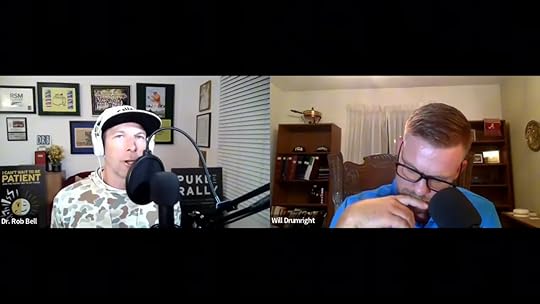
Mile 80 was when I had to admit something serious was wrong — the pain wasn’t subsiding and I couldn’t really push off. Telling the crew “I’ve got a flat tire” was humbling. I set a reachable goal (100 miles), but later realized anchoring firmly to that new number probably kept me from stretching farther. Hindsight: if I’d chosen 104 instead of 100, I might have pushed on longer. The injury was later diagnosed as a fifth metatarsal stress fracture.
 Solitude, Spiritual Moments & The Midnight BirthdayWere there moments that surprised you emotionally or spiritually?
Solitude, Spiritual Moments & The Midnight BirthdayWere there moments that surprised you emotionally or spiritually?Yes. Nighttime became solitary: I was the last runner out for several laps. I usually run without music, but for this race I brought some faith music that moved me. At 4:00 AM under moonlight, with tears and quiet prayer, I found perspective — even amid disappointment. At midnight we celebrated my daughter’s birthday (we share the same day) right on course — the race director sang “Happy Birthday” and she blew out an imaginary candle. Those human moments are why I race.
Did you have meaningful interactions with other runners?Absolutely. Early on I ran a loop with a 12-year-old named Hazel and helped her take the race one landmark at a time — “make it to the tree, then the parking lot.” Helping her reminded me to apply the same micro-goal strategy when things got hard later. That give-and-take between runners fills your soul and keeps you going.
 Debrief & Lessons LearnedHow did you process the result afterward?
Debrief & Lessons LearnedHow did you process the result afterward?Immediately after I struggled with mixed emotions — pride in 100 miles and disappointment that I couldn’t reach the original goal. Talking it out with friends, coaches and family helped. A core takeaway: control what you can, accept what you can’t, and be grateful for the things you did well. We packed up an entire day’s worth of gear afterward — that’s how many details were part of the event.
How did this race change you as a runner and coach?This race reinforced that preparation, attention to details, and team systems matter. It gave me confidence that the processes I use as a dr rob bell sport psychology coach are working: preparation, compartmentalization, and micro-goal setting. It also reminded me that good times don’t last — and that’s proof bad times won’t either. That perspective is a comforting lens I’ll bring into future coaching and racing.
 Mental Strategies & Practical TakeawaysWhat mental strategies carried you through when your body wanted to stop?
Mental Strategies & Practical TakeawaysWhat mental strategies carried you through when your body wanted to stop?I compartmentalized everything: short-term targets (get to the next road, the coolers, the farmhouse), keep nutrition and hydration consistent, and stay small. Simple is powerful — but simple doesn’t mean easy. When the picture grows too big, it becomes paralyzing. Keep it bite-sized and keep moving.
Will you do it again — and what advice would you give others?I thought about it immediately after the race. My daughter and son want to race it, and I’d love to be part of that. Advice: practice the pit-crew routines, test your sweat/fuel needs, train like you’ll race (we play like we train), and learn to set micro-goals. If you can run 13 miles easily, this format is perfect for distance goals like a marathon or 50 miles.
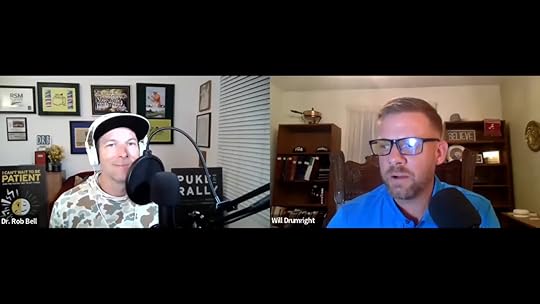
 Conclusion
ConclusionPrairie on Fire taught me about resilience, humility, and gratitude. As a dr rob bell sport psychology coach I’ll keep using these lessons — details matter, teamwork amplifies performance, and short-term goals get you through the long nights. Test becomes testimony; mess becomes the message. If you want to push your limits and to learn who you are in the arena, this format will show you — and you won’t do it alone.
 Watch the full episode
Watch the full episodeTo hear the full conversation and the audio moments I reference, check out the original episode.
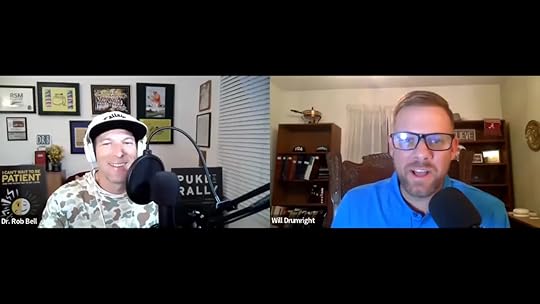
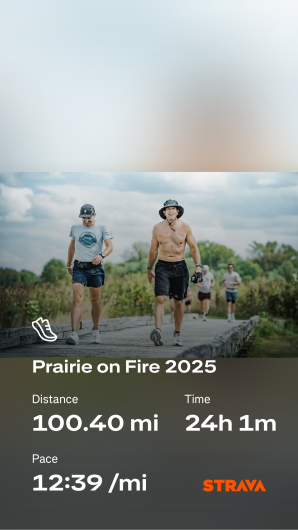
Knowing how to win a back-yard ultra is about persistence, strategy, and harnessing your inner strength. As you prepare, keep in mind the essential elements of how to win a back-yard ultra and train accordingly. Fostering a supportive community can help you discover how to win a back-yard ultra through shared insights and encouragement. We all want to know how to win a back-yard ultra, and it starts with defining our personal goals and motivations. Learning from others is key to understanding how to win a back-yard ultra, and sharing experiences can be beneficial.
Let’s discuss how to win a back-yard ultra by focusing on nutrition and hydration strategies that support endurance performance. Incorporating mental strategies plays a crucial role in knowing how to win a back-yard ultra and maintaining focus throughout the race. Achieving your goals requires understanding how to win a back-yard ultra and committing to a structured training regimen. Many athletes have questions about how to win a back-yard ultra, and it’s essential to address common concerns and training strategies.
By applying the principles of how to win a back-yard ultra, you can shape your training and racing experience effectively. Understanding how to win a back-yard ultra involves mastering endurance, pacing, and psychological resilience. Welcome to my blog where I provide valuable insights on how to win a back-yard ultra. In this post, I will delve deeper into how to win a back-yard ultra through effective training and mindset strategies.
Let’s explore the key tactics on how to win a back-yard ultra that can enhance your performance.
In this post, I will share insights on how to win a back-yard ultra, including important tips and personal strategies to help you succeed.
September 19, 2025
8 Ways Coach Jim Boylen Opens Doors: Lessons in Toughness
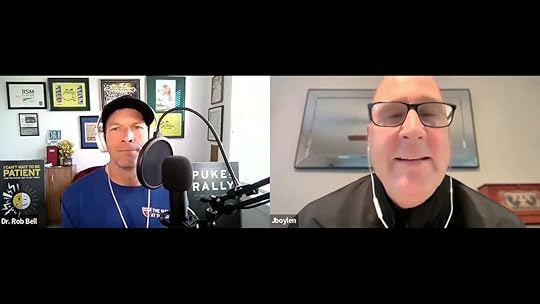
In this episode of the Mental Toughness podcast you’ll get a front-row seat to my conversation with Coach Jim Boylen.
If you want to learn how a hinge moment in childhood can shape a championship coaching career, how deliberate choices create opportunity, and how faith and discipline steady you through the hardest seasons, you’ll want to read this.
Throughout the post I’ll walk you through the core lessons Coach Jim Boylen shared—so you can apply them to your work, your team, and your life.
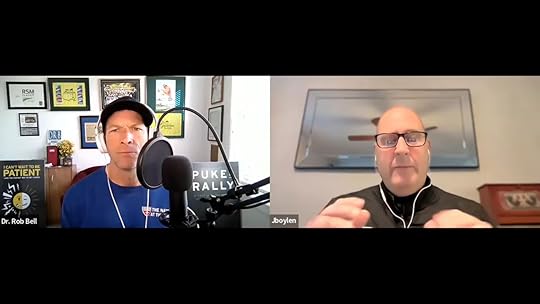
 The hinge moment that set the path2.
The hinge moment that set the path2.  Choose growth over comfort (the Michigan State move)3.
Choose growth over comfort (the Michigan State move)3.  Make yourself indispensable (the video story)4.
Make yourself indispensable (the video story)4.  Winning habits from the Rockets run5.
Winning habits from the Rockets run5.  Scout the story: the Drexler trade case study6.
Scout the story: the Drexler trade case study6.  Learn how great coaches think (Mus, Pop, and the value of simplicity)7.
Learn how great coaches think (Mus, Pop, and the value of simplicity)7.  Faith, tithing, and resilience through loss8.
Faith, tithing, and resilience through loss8.  Control the controllables and stop comparing1.
Control the controllables and stop comparing1.  The hinge moment that set the path
The hinge moment that set the pathYou learn early that life hands you decisions that become doors. Coach Jim Boylen tells the story of feeling alienated after his parents’ divorce and being offered a scholarship to stay in the Catholic system. His mom gave him a choice: stay or move to the public school. He chose the harder path and says that decision taught him how to make tough calls and stand by them.
“Decision you make, you’re going to have to stand by and stand with and make work.”
You should notice how ownership matters: when you pick a path, you develop the confidence to make the next big decision. That’s the hinge that opens doors.
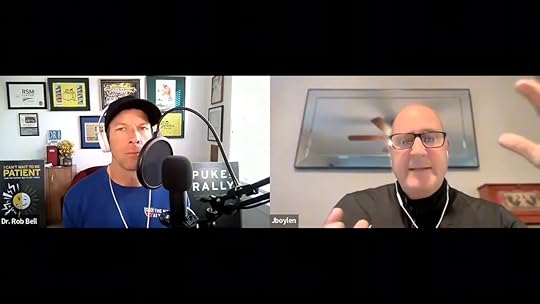
 Choose growth over comfort (the Michigan State move)
Choose growth over comfort (the Michigan State move)You can chase immediate comfort, or you can choose long-term growth. Jim explains why he left playing opportunities overseas to become the first graduate assistant at Michigan State. That move put him near mentors, on a Big Ten campus, and primed him for the NBA. You see the pattern: deliberate choices + the right people = momentum.
3. Make yourself indispensable (the video story)
Make yourself indispensable (the video story)You’ll always get opportunities when you do the work nobody else wants. When Jud Heathcote bought the Avid video system, assistants avoided it. Jim dove in, became the resident expert, and the technology that intimidated others became his ticket to the NBA.
“Make yourself so valuable they can’t get rid of you.”
You should ask: what task can you master that others avoid? That’s often the shortest route to responsibility and trust.

 Winning habits from the Rockets run
Winning habits from the Rockets runYou get a masterclass in calm leadership from the championship years. Jim credits Rudy Tomjanovich’s focus on the next possession and his composure in elimination games. The lesson for you: focus on the next assignment, not the past mistake or the long-term noise.
Win the next possession, not the last one.Embrace role clarity and rugged role players.Let process trump panic under pressure.5. Scout the story: the Clyde Drexler trade case study
Scout the story: the Clyde Drexler trade case studyYou learn how patience, attention to detail, and long-term projects matter. Rudy assigned Coach Jim Boylen to gather everything on Clyde Drexler—newspaper clippings, films, weekly notes. That disciplined scouting helped the organization make a pivotal midseason trade that shifted their postseason fate.
“We thought our rebounding would go down and our rebounding went up with Clyde.”
If you want influence, do the homework everyone else treats as busywork.
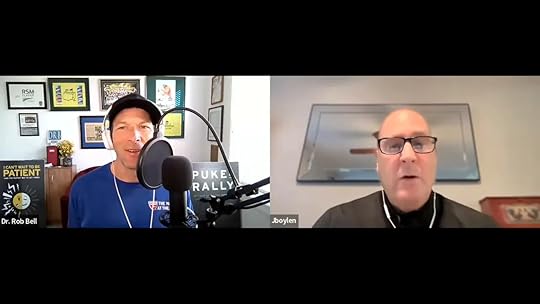
 Learn how great coaches think (Mus, Pop, and the value of simplicity)
Learn how great coaches think (Mus, Pop, and the value of simplicity)You should notice that top coaches combine toughness with care. Coach Jim Boylen breaks down what he learned from Eric Musselman—how to get the right play off the board in tight moments—and from Greg Popovich, who keeps strategy simple and emphasizes execution and rest. Your takeaway: simple plans, intelligently executed, beat complicated ones done poorly.
7. Faith, tithing, and resilience through loss
Faith, tithing, and resilience through lossYou see a different kind of toughness when life hits hard. Jim walks through the season he lost his brother, got fired, and went through a divorce—then found space to grieve, to be with his daughters, and to rebuild. He’s held to a lifelong practice of tithing since childhood, and he connects that discipline to the favor he’s experienced.
“It’s not my money anyways… He gave me the ability to make it, so it’s really his.”
You should take from this the reminder that spiritual practices or steady principles can anchor you when external identity fractures.
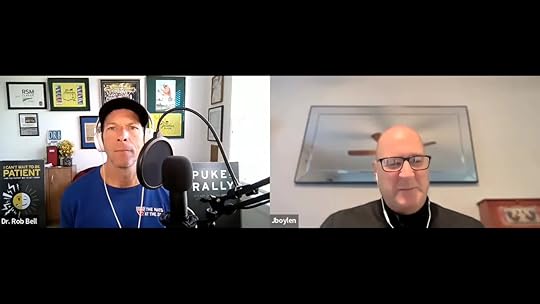
 Control the controllables and stop comparing
Control the controllables and stop comparingYou can’t manage everything, but you can control the basics: effort, attitude, punctuality, energy, and honesty. Jim’s final advice is for you to focus on those controllables and avoid the comparative mindset that derails people. Honest feedback and open conversation make teams resilient—and win games.
Own your effort and attitude.Tell the truth and accept it from others.Be the best version of yourself, not a copy of someone else.Final thoughtsYou walked through the arc of the life of Coach Jim Boylen . His hinge moments, hard decisions, technical mastery, mentorship under Hall of Famers, and the faith that keeps him steady. If you’re building a team, a career, or simply trying to be tougher in life, use these eight lessons as a checklist. Start with the controllables, find the work nobody wants, steward your relationships, and let disciplined choices become your hinge.
If you want to see the full conversation and hear these stories in Jim’s voice, watch the full episode on the Mental Toughness podcast.
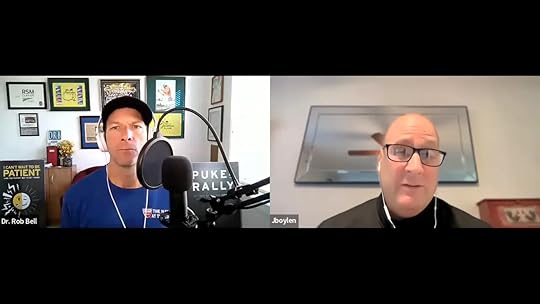

Dr. Rob Bell is a Sport Psychology Coach. DRB & associates coach executives and professional athletes. Some clients have included three different winners on the PGA Tour, Indy Eleven, University of Notre Dame, Marriott, and Walgreens.
Check Out All The Books
Keynote Speaking On Mental Toughness
Mental Toughness Podcast as we interview expert athletes and coaches about Mental Strength and their Hinge Moment.
New Blog Posts are published weekly.
Follow on Twitter @drrobbell
Follow on Instagram @drrobbell
August 26, 2025
7 Lessons from Mia Hammond: How an Elite Amateur Golfer Built Mental Toughness

This article distills the insights shared by Dr. Rob Bell with guest Mia Hammond, highlighting the moments, habits, and mindset that helped Mia Hammond rise from junior events to an Epson Tour victory and a commitment to Duke University. Dr. Rob Bell’s conversation with Mia explores pressure, setbacks, practical routines, and clear strategies that aspiring players can adopt.
Table of Contents1. Early spark: multi-sport roots and the competitive ignition2.
Early spark: multi-sport roots and the competitive ignition2.  Augusta National: a hinge moment under pressure3.
Augusta National: a hinge moment under pressure3.  From Monday qualifying to the Epson Tour win: execution under a new spotlight4.
From Monday qualifying to the Epson Tour win: execution under a new spotlight4.  Mental tools and the value of a support network5.
Mental tools and the value of a support network5.  The father-caddie dynamic: presence, calm, and levity6.
The father-caddie dynamic: presence, calm, and levity6.  Setbacks that taught patience: the DQ, reputation, and recovery7.
Setbacks that taught patience: the DQ, reputation, and recovery7.  Balance and practical advice for juniors facing burnout1.
Balance and practical advice for juniors facing burnout1.  Early spark: multi-sport roots and the competitive ignition
Early spark: multi-sport roots and the competitive ignitionMia Hammond didn’t start as a single-sport prodigy. She played softball, basketball and gymnastics before focusing on golf around age 10–11. That multi-sport foundation contributed balance, coordination, and competitive instincts.
One hinge moment for Mia Hammond early memory came from a US Kids event where a sixth-place finish at age seven stung so much she vowed to earn a medal. “The top five received a medal… I wanted a medal so bad,” she recalls — and two years later she won her first US Kids tournament. That hunger shaped the trajectory that would follow.
2. Augusta National: a hinge moment under pressure
Augusta National: a hinge moment under pressureThe Drive, Chip & Putt win at Augusta National in 2022 was transformative. Mia remembers the surreal logistics — a separate practice area, assigned chipping spots, and intense restrictions that made the stage feel enormous. Standing over the final putt with rows of people behind her, she admits: “I was pretty nervous.”
That experience delivered more than a trophy. It introduced media exposure, live interviews, and interaction with iconic figures — experiences that built both poise and perspective for later pressure-filled weeks.
3. From Monday qualifying to the Epson Tour win: execution under a new spotlight
From Monday qualifying to the Epson Tour win: execution under a new spotlightMia’s ascent included shooting a 66 in Monday qualifying, making the cut at an LPGA junior event, playing on the Junior Solheim Cup, and ultimately becoming the first amateur in five years to win on the Epson Tour at the Greater Toledo Classic.
The Toledo week showed how small adjustments and steady execution win tournaments. After some mid-week nerves, a technical tweak in the transition — “slow it down, keep it smooth” — stabilized her ball-striking. She carried a lead into the final round for the first time at that level and had to defend it, a new psychological challenge: “Everyone was chasing me and I was the one they were waiting for to slip up.”
4. Mental tools and the value of a support network
Mental tools and the value of a support networkMia credits access to a sports psychologist and coaches on the US Developmental National Team with helping her manage expectations and pressure. Mentorship — from coaches who’ve been at the college and pro level — gave actionable perspective and helped convert practice into performance.
She emphasizes modeling: surround yourself with players better than you, watch their reps, and target specific parts of the game to improve. Practically, that translated into measurable gains in her iron and wedge play inside 120 yards — the strength of her game.

 The father-caddie dynamic: presence, calm, and levity
The father-caddie dynamic: presence, calm, and levityMia Hammond credits her dad as a constant presence — from early simulator sessions in the basement to being on the bag during professional events. His reminders kept her grounded in Toledo: “This is no different than anything else… you’ve already proven yourself.”
“What happens from here on out is just gravy.”
That blend of reassurance and light-hearted bets (yes, shoes were at stake) allowed Mia to stay present and keep nerves from escalating into panic during the final-round pressure cooker.
6. Setbacks that taught patience: the DQ, reputation, and recovery
Setbacks that taught patience: the DQ, reputation, and recoveryMia openly shares a painful stretch after signing the wrong scorecard at a combined LPGA/AJGA event which resulted in disqualification. Though she called the mistake on herself, the fallout lingered however— affecting confidence, recruiting conversations, and how she thought about performance.
Working with a sports psychologist she reframed the experience and recognized it had become a persistent worry. Letting go of that weight and rebuilding incrementally was the breakthrough: “Finally letting that go… helped me break through.”

 Balance and practical advice for juniors facing burnout
Balance and practical advice for juniors facing burnoutMia stresses the need for separation between golf and life. She keeps a secondary social account that isn’t filled with golf content and chooses friends who don’t play, preserving outlets like pickleball, pool days, and simple downtime.
Her top practical advice to junior players: take breaks and avoid “searching” for fixes when struggling. Make small weekly goals and repeat them until progress accumulates. She learned that impatience and forcing breakthroughs backfire — patience wins.
Conclusion: A roadmap from talent to sustained growthMia Hammond has a story which is a compact lesson in combining talent, smart habits, emotional intelligence, and the courage to own mistakes. Her path — from US Kids motivation to an Epson Tour win and a commitment to Duke — underscores that elite development is as much about steady mental work as it is about swing mechanics.
For players and parents seeking a model for growth: focus on quality reps, surround yourself with people who raise the standard, protect reputation through honesty, and allow room for recovery. The mountain-top moments are spectacular — but the ascent is where muscle and patience are forged.


Dr. Rob Bell is a Sport Psychology Coach. DRB & associates coach executives and professional athletes. Some clients have included three different winners on the PGA Tour, Indy Eleven, University of Notre Dame, Marriott, and Walgreens.
Check Out All The Books
Keynote Speaking On Mental Toughness
Mental Toughness Podcast as we interview expert athletes and coaches about Mental Strength and their Hinge Moment.
New Blog Posts are published weekly.
Follow on Twitter @drrobbell
Follow on Instagram @drrobbell
August 18, 2025
Dr. Rob Bell | Finding the Good in Bad Situations

In our original video with Dr. Rob Bell, we — as a Mental Toughness Speaker and coach — walk through a simple but powerful idea: finding the good in bad situations. We tell the story of John Starks to show how setbacks can become the doorway to opportunity when we bring relentless work ethic and mental toughness to the recovery. Below we expand on that message, break down the lessons, and give practical takeaways for athletes, coaches, and anyone building mental resilience.
Why we look for good in bad situations
We start with a principle we repeat often: no matter how tragic something feels in the moment, some good is going to come out of it. That doesn’t mean pain isn’t real — it is — but it does mean outcomes aren’t fixed. As a Mental Toughness Speaker, our role is to help teams and individuals reframe setbacks so they can see possibilities instead of only loss.
John Starks: a case study in grit

John Starks didn’t follow a conventional path. He wasn’t a standout in high school, played community college ball, and only got one year at Oklahoma State because a coach noticed him. He barely had a role with the Golden State Warriors, played a couple of games, and was cut. The turning point came during a Knicks tryout when he tried to dunk on seven-foot Patrick Ewing.
Ewing rejected him, Starks fell, and he was hurt. Here’s to finding the good in bad situations…
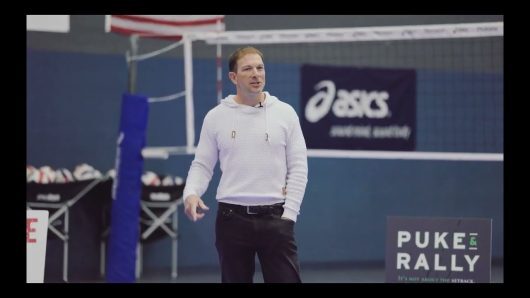 How an injury became opportunity
How an injury became opportunity 
Because of an NBA rule at the time, teams couldn’t cut an injured athlete. That bureaucratic detail gave Starks time to rehab with the Knicks and show his work ethic and shooting ability. The organization watched him grind, and rather than letting one failed attempt define him, his response to the injury did.
What we learn from StarksSetbacks can create unexpected windows: an injury forced a rehabbing period that revealed his character.Mental toughness is shown in how we respond, not in never falling.Opportunity often follows persistence — showing up and working hard matters more than a single highlight.“In every bad situation some good is going to come out of it.”
 Practical steps to build mental toughness
Practical steps to build mental toughness 
We coach teams to translate stories like Starks’s into daily practice. Start with small, repeatable actions:
Reframe the event: ask what good could come from this setback.Create a rehabbing routine — physical or mental — and track consistency.Show your work publicly: let coaches and teammates see the effort.Focus on controllables (work, recovery, attitude) and let outcomes follow.Bringing it together as a Mental Toughness SpeakerFinding the good in bad situations

When we speak to teams and athletes, we use real examples to move ideas from theory to practice. The John Starks story isn’t just nostalgia — it’s a blueprint. Similar to our mental health playbook , If we remember one thing, it’s this: resilience grows where we choose to act, not where we choose to complain.
As a Mental Toughness Speaker, our mission is to help you notice the good that can emerge from pain and to provide the tools to turn setbacks into momentum. Let’s commit to showing up, grinding through rehabs and obstacles, and trusting that the good will show up in time.
Key takeaway: in every bad situation, some good is going to come out of it — and our response determines how quickly and how much.


Dr. Rob Bell is a Sport Psychology Coach. DRB & associates coach executives and professional athletes. Some clients have included three different winners on the PGA Tour, Indy Eleven, University of Notre Dame, Marriott, and Walgreens.
Check Out All The Books
Keynote Speaking On Mental Toughness
Mental Toughness Podcast as we interview expert athletes and coaches about Mental Strength and their Hinge Moment.
New Blog Posts are published weekly.
Follow on Twitter @drrobbell
Follow on Instagram @drrobbell



